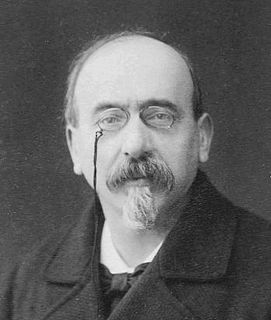A Quote by Frank Herbert
Religion often partakes of the myth of progress that shields us from the terrors of an uncertain future.
Related Quotes
The scientific doctrine of progress is destined to replace not only the myth of progress, but all other myths of human earthly destiny. It will inevitably become one of the cornerstones of man's theology, or whatever may be the future substitute for theology, and the most important external support for human ethics.
Myth is a tale once believed as truth; believed, it is not myth, but religion. A tale once religiously believed that has come to be called a myth is something of religion corrupted with disbelief. What are beliefs for some societies but myths for others cannot fill spiritual vacancies in the life of those others.
We have no reason to mistrust our world, for it is not against us. Has it terrors, they are our terrors; has it abysses, those abysses belong to us; are dangers at hand, we must try to love them.... Perhaps all the dragons of our lives are princesses who are only waiting to see us once beautiful and brave. Perhaps everything terrible is in its deepest being something helpless that wants help from us.
Good-nature is that benevolent and amiable temper of mind which disposes us to feel the misfortunes and enjoy the happiness of others, and, consequently, pushes us on to promote the latter and prevent the former; and that without any abstract contemplation on the beauty of virtue, and without the allurements or terrors of religion.
For Russians in the '90s, there was that sense of not knowing what the future held at all. And coming off a long period of when people actually were robbed of the ability to plan their future - that's very much a part of totalitarian control - that exacerbated it. In this country, we are not coming off a long period like that. But I think that for a lot of Americans, as a result of globalization, as a result of the housing crisis, the future is just too uncertain. And their place in the world is too uncertain.
Even time is a concept. In reality we are always in the eternal present. The past is just a memory, the future just an image or thought. All our stories about past and future are only ideas, arising in the moment. Our modern culture is so tyrannized by goals, plans, and improvement schemes that we constantly live for the future. But as Aldous Huxley reminded us in his writings, "An idolatrous religion is one in which time is substituted for eternity...the idea of endless progress is the devil's work, even today demanding human sacrifice on an enormous scale.




































